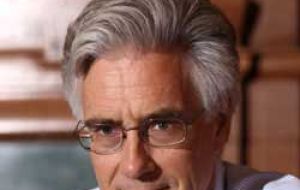MercoPress. South Atlantic News Agency
UK financial watchdog admits “risk assessment” errors
 Lord Turner
Lord Turner The head of Britain's Financial Services Authority (FSA) has admitted that the watchdog did not focus enough on the excessive risks being taken by banks.
"We didn't focus enough on that," Lord Turner said on the BBC's Andrew Marr Show, referring to the fact that by 2004 "the whole system was risky". He stressed that other regulators around the world had also failed to notice the problem. Lord Turner took over as chairman of the City watchdog in September 2008. His deputy, Sir James Crosby, resigned from his position last week, following criticism of decisions he had taken when he was chief executive of HBOS. There was also criticism of the decision to appoint Sir James to his job at the FSA, when the watchdog had previously warned about problems with the risk regime he had set up at HBOS. Lord Turner stressed that the decision to appoint him had been the Treasury's decision, but said that the warnings about risk at HBOS had been routine matters, relating more to the processes and structures rather than a major warning about the risks being taken. But he conceded that the FSA's focus on such things had also been a failing. "The FSA at that time was more focused on the processes, the structures, the reporting lines, rather than simply saying 'when I look at this whole business model... it's all too risky'." Referring to the revelations that HBOS expected to make an annual loss of £10bn, he said: "The losses that have been revealed this week, I would point out, are not huge surprises to the FSA" He said the authority had predicted such losses when carrying out stress-testing in October. Lord Turner is currently reviewing the way the financial sector is regulated and will publish his findings on 18 March. He said his review would bring about "very major changes" to the way banks are regulated, such as how much cash they have to hold in reserve. He also said there would be changes to rules on credit rating agencies and how bankers are paid. Lord Turner defended the decision to pay bonuses to the FSA staff, but added that the authority's chief executive Hector Sants would not be taking a bonus. He said that for the rest of staff, getting rid of bonuses would mean cutting pay by an average of 15%, at a time when politicians such as David Cameron are saying that the regulator needs to attract better staff.




Top Comments
Disclaimer & comment rulesCommenting for this story is now closed.
If you have a Facebook account, become a fan and comment on our Facebook Page!